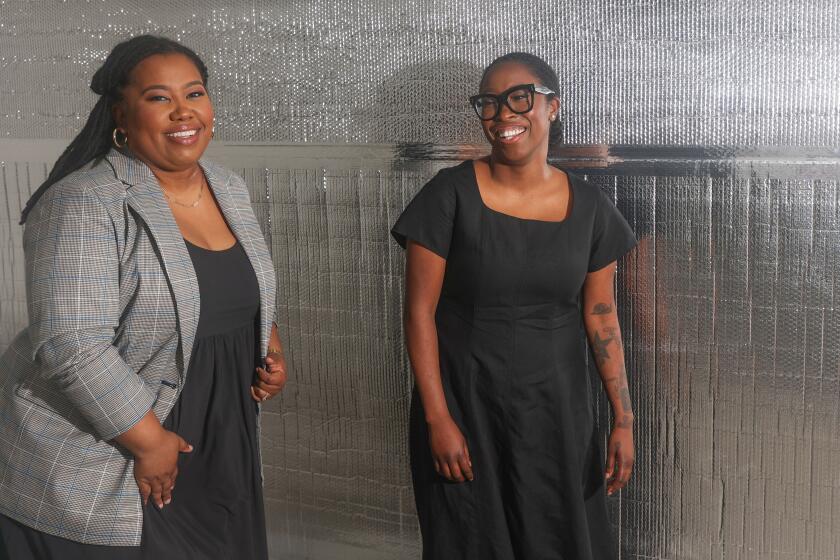Court-Sanctioned Secrets Can Kill
By many accounts, General Motors’ C/K pickup truck is a dangerous vehicle, prone to fiery crashes and explosion. More than 700 people have burned to death in fires triggered by C/K crashes since the truck was introduced in the 1970s.
But if it were left to GM, the public wouldn’t know anything about that. In fact, the company spent years paying off victims and their families through secret court settlements meant to ensure that the details of those cases never emerged.
That changed last week when a federal judge in Montana unsealed a court document showing that as of 2000, the company -- while continuing to deny liability -- had paid nearly half a billion dollars, or an average of more than $1.6 million, to settle 297 lawsuits for deaths and injuries resulting from crashes involving the C/K, which is no longer in production.
GM is hardly alone in trying to keep this sort of negative information secret. Tire makers and drug companies, among others, have also settled claims against their products using strategies that aim to ensure that the public learns little about the claims -- not the settlement amounts, not the underlying facts, not even, if possible, that a lawsuit was brought at all.
Pfizer, for instance, secretly settled dozens of lawsuits in connection with its Bjork-Shiley heart valves, which were used by 50,000 patients before the product was finally recalled in 1986. And Firestone recalled 6.5 million tires in August 2000, but only after eight years of accidents and deaths led to lawsuits that the company quietly settled. Firestone launched the recall only after details from one of those court files leaked out.
The practice of secret settlements is not limited to makers of consumer products. The Roman Catholic Church has settled many claims charging sexual abuse by priests on condition that the victims not reveal the abuse or the fact or terms of settlement. Many abusive priests were then reassigned and continued to have contact with children. Father Jerold Lindner of Los Angeles allegedly molested two brothers during weekend retreats in the Santa Cruz Mountains -- and when they sued years later, the church approved a $625,000 settlement subject to secrecy. Law enforcement was not told, nor were parents or teachers, and Lindner continued to teach and work with Boy Scouts.
The public is rightly alarmed by these secrecy strategies because public ignorance increases the danger to those who may still be using (or thinking of buying) the defective product or who may be at risk from, say, an incompetent doctor or a predatory priest who is still working.
Secrecy is fine when dealing with personal matters, as in a divorce, or with information that the law otherwise protects, like trade secrets. But secrecy is wrong when people remain exposed to the same danger that harmed the plaintiff.
Ways to limit secrecy vary with the circumstances, but here are three suggestions that would be easy to implement.
First, courts should not seal their own files without compelling justification. Our legal system has a strong presumption that court files and courtrooms are open to the public and the media. Too often judges seal files anyway, perhaps to facilitate settlements that they assume will not otherwise be achieved. That would be a bad reason to seal a court file even if the assumption were correct. But it is not correct. Defendants’ claims that they will not settle unless files are sealed are mostly bluff. Without a settlement, defendants have to go to trial, during which time even more harmful information can emerge.
Second, judges should never be allowed to seal information that might reveal an ongoing public danger. Preventing harm is always more important than anyone’s interest in secrecy.
Third, defendants should be barred from conditioning settlements on a plaintiff’s blanket promise of confidentiality. Today, not only do defendants demand these promises, they often go further and get judges to “so order” them. A plaintiff who breaks the promise can be found guilty of contempt.
In other contexts, paying someone to keep silent is considered obstruction of justice. The fact that the payment is part of a settlement should make no difference. It is hush money all the same.
Unfortunately, plaintiffs are often willing to promise secrecy in exchange for a generous settlement, putting their own interests ahead of the public’s. The only way to stop that from happening is to forbid it.
We can always hope that major American companies will put the safety of their customers before profits and warn us of potential dangers. But such hopes have thus far proved misplaced. Without a tectonic shift in standards of institutional responsibility, it is up to the courts and legislators to protect the public from the strategies that make secrecy possible.



